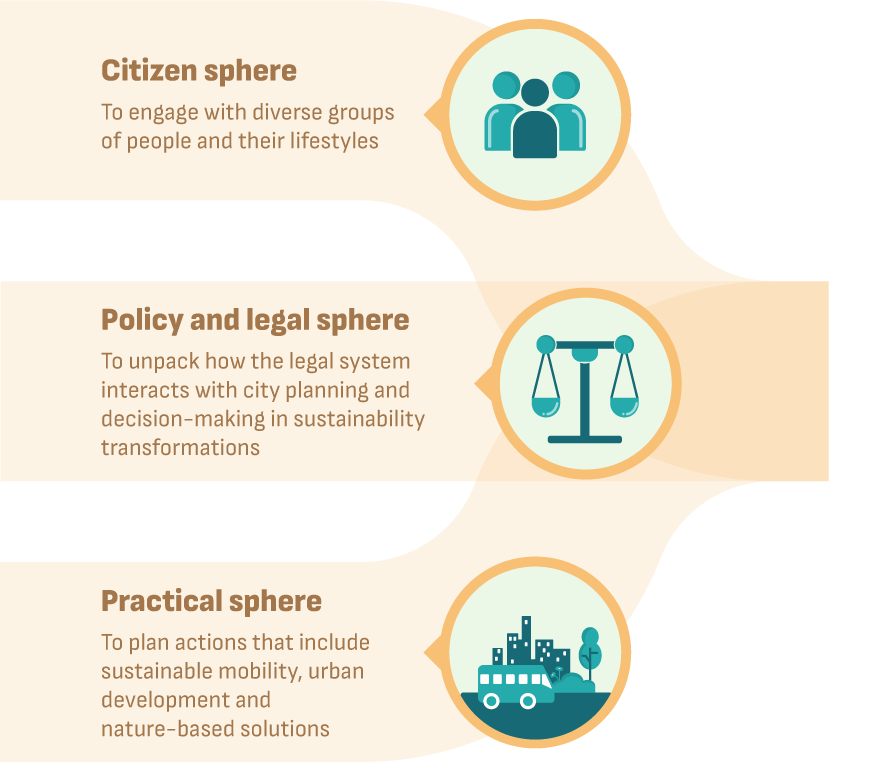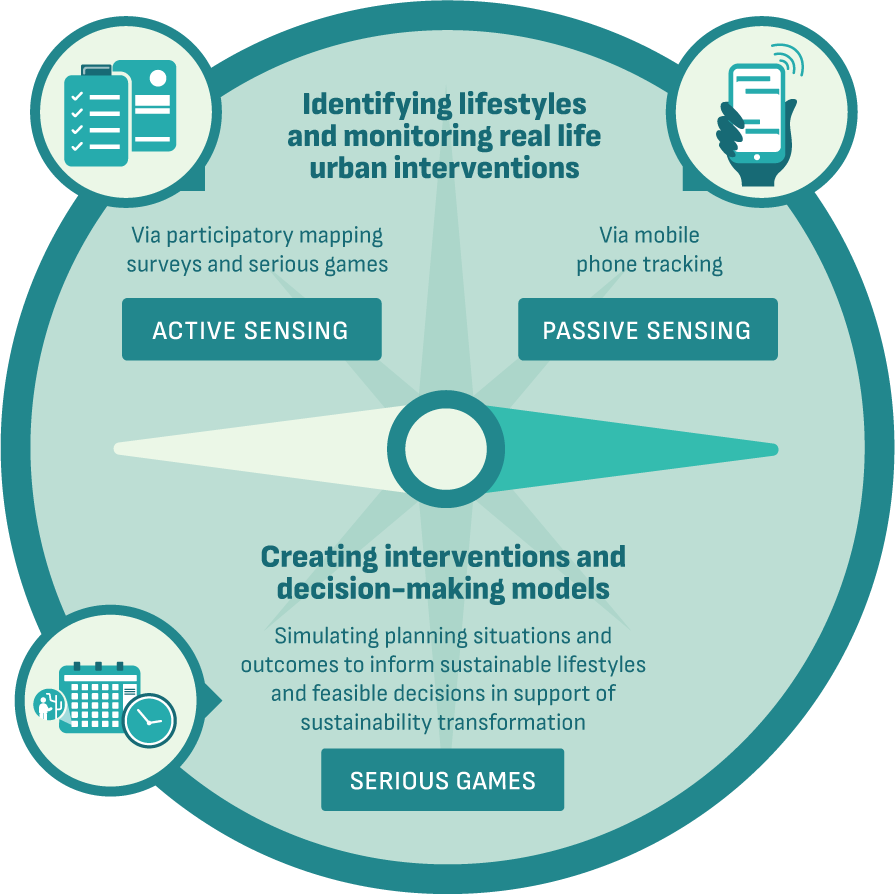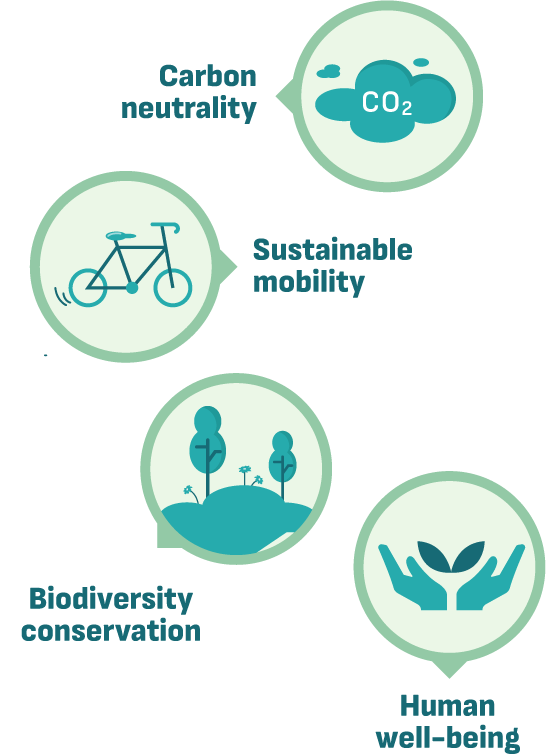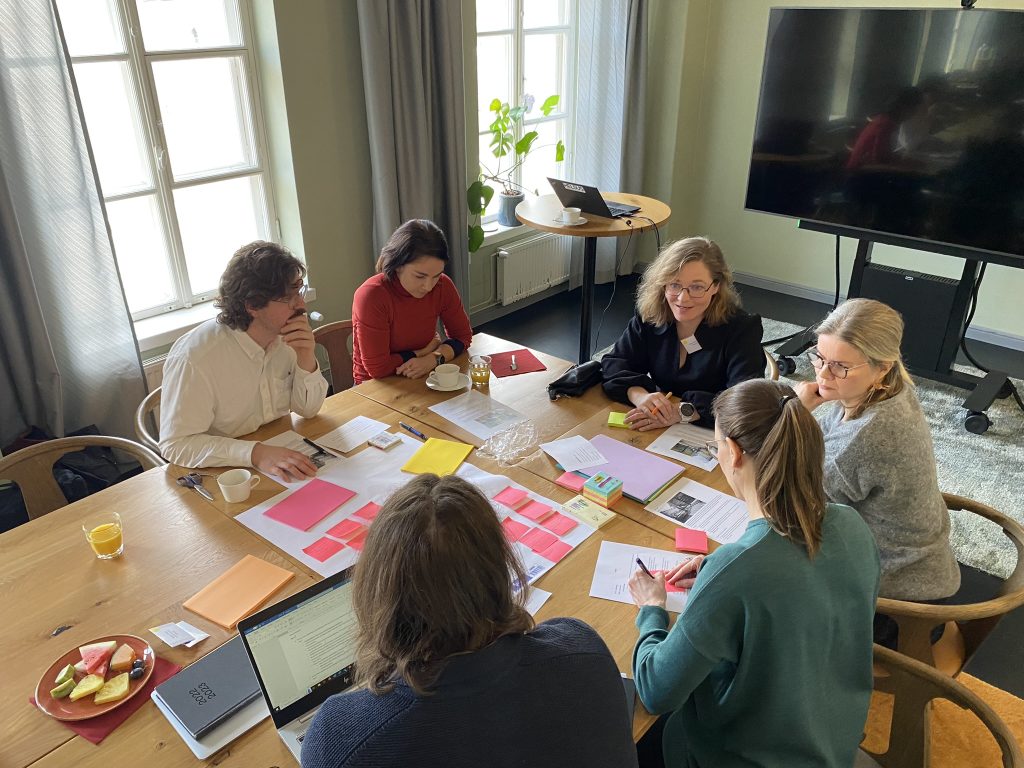PROJECT
Reimagining cities
We identify new ways of planning and governing cities that support carbon neutrality, biodiversity conservation and sustainable lifestyles in cities by 2030
THE FUTURE OF URBAN LIFE
Building a new paradigm
We seek to support the shift to more sustainable and respectful lifestyles, through zero-emission transport, the conservation of biodiversity and prioritisation of human well-being.
To achieve our goals, we carry out an integrated suite of active sensing approaches, investigating people’s life patterns with tools such as participatory mapping and serious gaming.
In addition, we combine these with a set of passive sensing techniques, using big data analytics that provide us key information about mobility.
Finally, we transfer our knowledge to policymaking to facilitate the adaptation of transformative governance methods. Thus, we aim at applying our strategies effectively to support reaching the goals of carbon neutrality, biodiversity conservation and sustainable lifestyles in urban areas of Finland by 2030.
The compass for sustainability transformation
How to navigate towards greener and healthier ways of living
Actions at a city level are critical to the achievement of global sustainability goals. In Transformative Cities we aim to understand the relationship between citizens and urban spaces, and inform decisions in support of sustainable urban transformation.
Covering three spheres of change
Methods for supporting sustainability in cities can be targeted at different spheres.

Finding the best strategy
Our tools and methods seek to help decision-makers find the most effective measures in each case.

Shifting towards better practices
The impact of the final actions selected can be measured to make sure they promote lifestyles that cover several key aspects of sustainable urban transformation.





